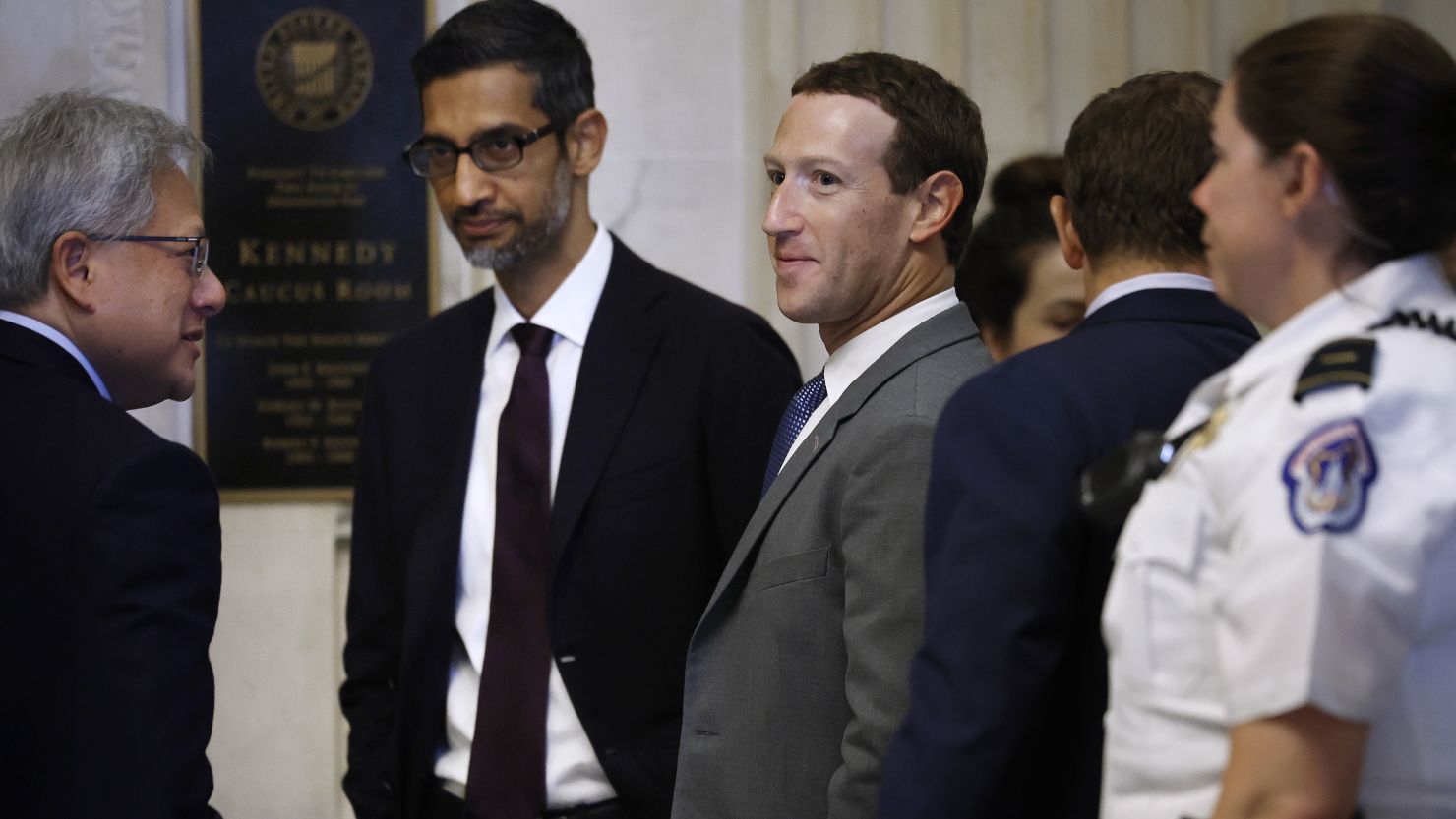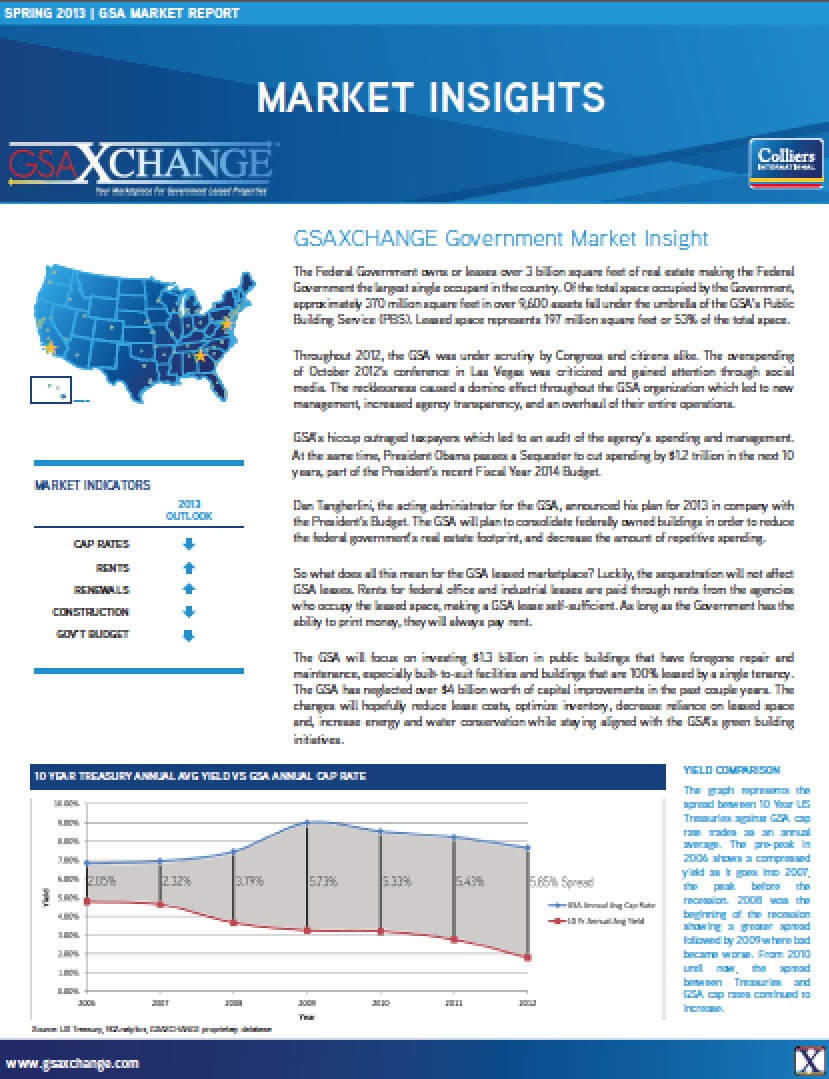The Zuckerberg-Trump Dynamic: Implications For The Tech Industry

Table of Contents
The Role of Social Media in the 2016 Election and Beyond
The 2016 US Presidential election highlighted the significant role social media platforms, particularly Facebook, play in shaping political discourse. The Zuckerberg-Trump dynamic, characterized by both collaboration and conflict, became central to this narrative.
Cambridge Analytica Scandal and its Fallout
The Cambridge Analytica scandal, which involved the harvesting of millions of Facebook users' data for political advertising purposes, severely damaged public trust in Facebook and ignited global debates about data privacy. This event significantly contributed to the complex Zuckerberg-Trump dynamic, shining a light on the vulnerabilities of social media platforms and their potential for misuse.
- Data breaches: The scandal exposed the ease with which personal data could be harvested from social media platforms, raising concerns about data security and privacy.
- Regulatory scrutiny: The fallout led to increased regulatory scrutiny globally, including the implementation of the General Data Protection Regulation (GDPR) in Europe and the California Consumer Privacy Act (CCPA) in the US. These regulations aimed to strengthen data protection and user control over personal information.
- Impact on Facebook's reputation: The scandal significantly damaged Facebook's reputation, leading to calls for greater accountability and transparency from the company and its leadership. This damage fueled the ongoing debates surrounding the Zuckerberg-Trump dynamic and its implications for social media's role in society.
The Spread of Misinformation and Disinformation
Facebook's algorithms, designed to maximize user engagement, inadvertently contributed to the spread of misinformation and disinformation during the 2016 election and subsequent events. The Zuckerberg-Trump dynamic played out against this backdrop, as Trump utilized Facebook extensively to reach his base while facing criticism for the spread of false narratives on the platform.
- Algorithmic bias: Concerns arose about algorithmic bias, where algorithms inadvertently amplify certain viewpoints or narratives, creating "echo chambers" and reinforcing political polarization.
- Echo chambers: Facebook's algorithms often placed users within "echo chambers," limiting exposure to diverse perspectives and facilitating the spread of misinformation within specific ideological groups.
- Impact on political discourse: The spread of misinformation significantly impacted political discourse, eroding public trust in institutions and hindering informed decision-making.
- Fact-checking initiatives: In response to criticism, Facebook implemented fact-checking initiatives, but their effectiveness remains a subject of ongoing debate.
Policy Responses and Regulatory Scrutiny
The Zuckerberg-Trump dynamic has spurred significant policy responses and regulatory scrutiny of the tech industry. The relationship between these two figures has highlighted the power imbalance between social media giants and the need for increased accountability.
Section 230 Debates and Their Significance
Section 230 of the Communications Decency Act (CDA) has been at the center of intense debate. This provision shields online platforms from liability for user-generated content. The Zuckerberg-Trump dynamic significantly influenced this debate, with Trump frequently criticizing Section 230, while Zuckerberg navigated the complex legal and political landscape surrounding it.
- Arguments for and against repealing or amending Section 230: Proponents argue that Section 230 is essential for free speech and innovation, while critics contend that it shields platforms from accountability for harmful content.
- Potential impacts on free speech and content moderation: Changes to Section 230 could have significant impacts on free speech and content moderation practices on social media platforms. The Zuckerberg-Trump dynamic reveals the delicate balance between these two values.
Antitrust Investigations and Concerns
Facebook's market dominance has led to antitrust investigations and concerns about its anti-competitive practices. This issue is intricately linked to the Zuckerberg-Trump dynamic, as the administration's approach towards antitrust enforcement was a key factor in shaping the regulatory landscape.
- Monopoly power: Facebook's size and influence raise concerns about its monopoly power and its potential impact on competition within the tech industry.
- Anti-competitive practices: Allegations of anti-competitive practices, such as acquisitions aimed at stifling competition, have fueled antitrust investigations.
- Potential break-up of Facebook: Some have called for the break-up of Facebook to increase competition and innovation within the social media market.
- Impact on innovation: Concerns exist that Facebook's market dominance could stifle innovation by limiting opportunities for smaller competitors.
Long-Term Implications for the Tech Industry
The Zuckerberg-Trump dynamic has profound long-term implications for the tech industry, shaping the future of content moderation, social media regulation, and the broader relationship between technology and democracy.
The Future of Content Moderation
Content moderation on social media platforms remains a significant challenge, requiring a balance between protecting free speech and preventing the spread of harmful content. The Zuckerberg-Trump dynamic highlighted the difficulties in achieving this balance.
- Balancing free speech with the need to prevent harm: This is a central ethical dilemma for social media platforms, exacerbated by the complexities of the Zuckerberg-Trump dynamic.
- Algorithmic solutions: Developing effective algorithms for content moderation is a significant technological challenge.
- Human oversight: Human oversight remains crucial for effective content moderation, particularly for complex or nuanced cases.
The Evolution of Social Media Regulation
The future regulatory landscape for social media is uncertain, influenced by the Zuckerberg-Trump dynamic and ongoing debates about the role of government versus self-regulation.
- Self-regulation vs. government regulation: The balance between these two approaches is a crucial consideration for the future of social media regulation.
- International cooperation: International cooperation is essential for effective global governance of social media platforms.
- The role of international organizations: International organizations will likely play an increasingly important role in shaping the regulatory landscape for social media.
Conclusion
The Zuckerberg-Trump dynamic has profoundly reshaped the tech industry landscape. From the Cambridge Analytica scandal to ongoing debates about Section 230 and antitrust concerns, the implications of this complex relationship are far-reaching. Understanding the interplay between political power, social media algorithms, and regulatory responses is crucial for navigating the future of technology. Moving forward, continued scrutiny of the Zuckerberg-Trump dynamic, along with proactive policy changes and ethical considerations, are necessary to ensure a more responsible and transparent digital environment. The ongoing discussion surrounding the Zuckerberg-Trump dynamic requires our sustained attention to prevent future abuses and safeguard democratic processes.

Featured Posts
-
 Louisville Restaurants Seek Relief From River Road Roadwork
Apr 29, 2025
Louisville Restaurants Seek Relief From River Road Roadwork
Apr 29, 2025 -
 The Future Of Pete Roses Mlb Ban Trumps Potential Pardon Decision
Apr 29, 2025
The Future Of Pete Roses Mlb Ban Trumps Potential Pardon Decision
Apr 29, 2025 -
 Analyzing The Treasury Market Insights From April 8th
Apr 29, 2025
Analyzing The Treasury Market Insights From April 8th
Apr 29, 2025 -
 New Music Willie Nelsons Oh What A Beautiful World
Apr 29, 2025
New Music Willie Nelsons Oh What A Beautiful World
Apr 29, 2025 -
 River Road Construction Cripples Louisville Restaurants
Apr 29, 2025
River Road Construction Cripples Louisville Restaurants
Apr 29, 2025
Latest Posts
-
 Trial Of The Century Cardinals Legal Team Presents Evidence Of Prosecutorial Misconduct
Apr 29, 2025
Trial Of The Century Cardinals Legal Team Presents Evidence Of Prosecutorial Misconduct
Apr 29, 2025 -
 Cardinal Beccius Unfair Trial Claim Bolstered By New Evidence
Apr 29, 2025
Cardinal Beccius Unfair Trial Claim Bolstered By New Evidence
Apr 29, 2025 -
 Reviving Nostalgia Older Viewers And Their You Tube Habits
Apr 29, 2025
Reviving Nostalgia Older Viewers And Their You Tube Habits
Apr 29, 2025 -
 How You Tube Is Attracting A Growing Audience Of Older Viewers
Apr 29, 2025
How You Tube Is Attracting A Growing Audience Of Older Viewers
Apr 29, 2025 -
 London Real Estate Fraud British Court Upholds Vaticans Claim
Apr 29, 2025
London Real Estate Fraud British Court Upholds Vaticans Claim
Apr 29, 2025
